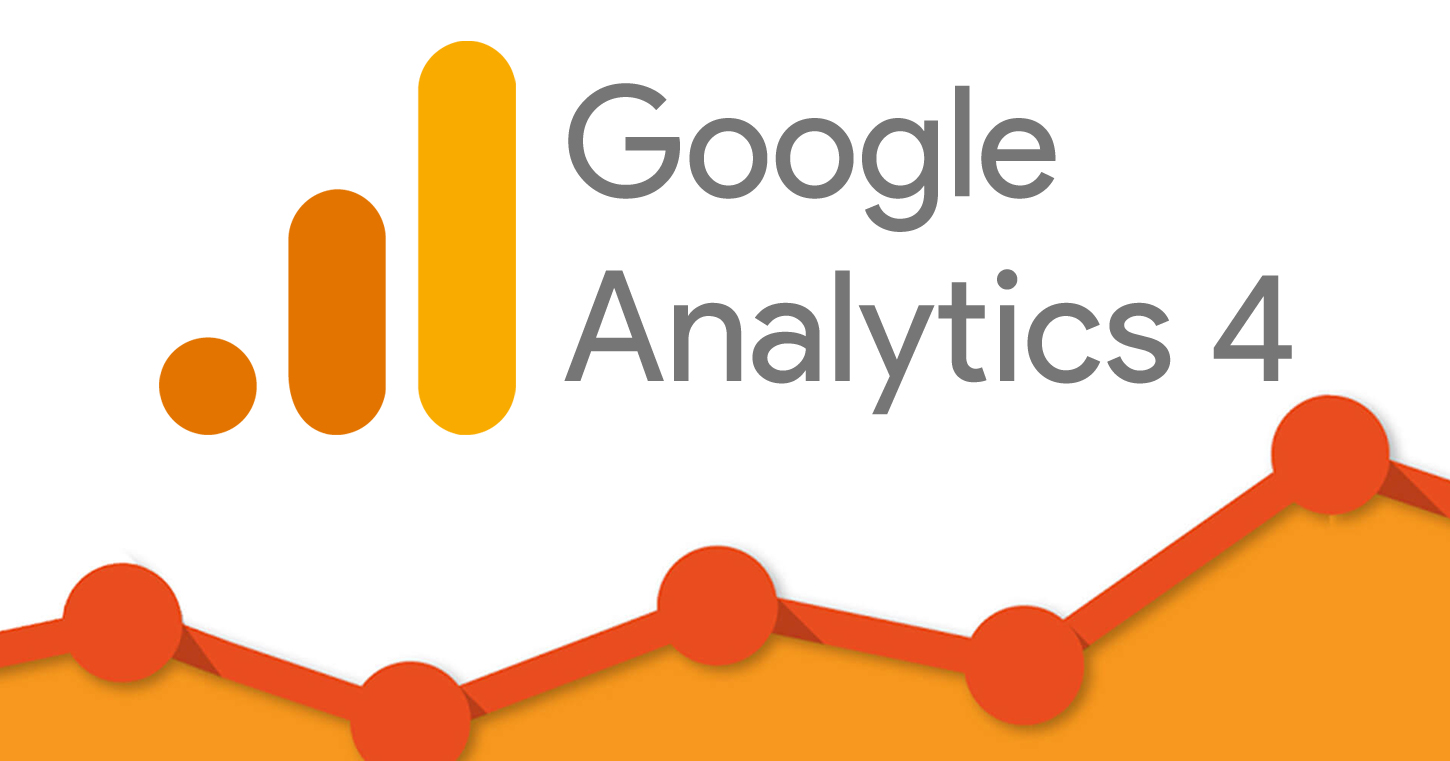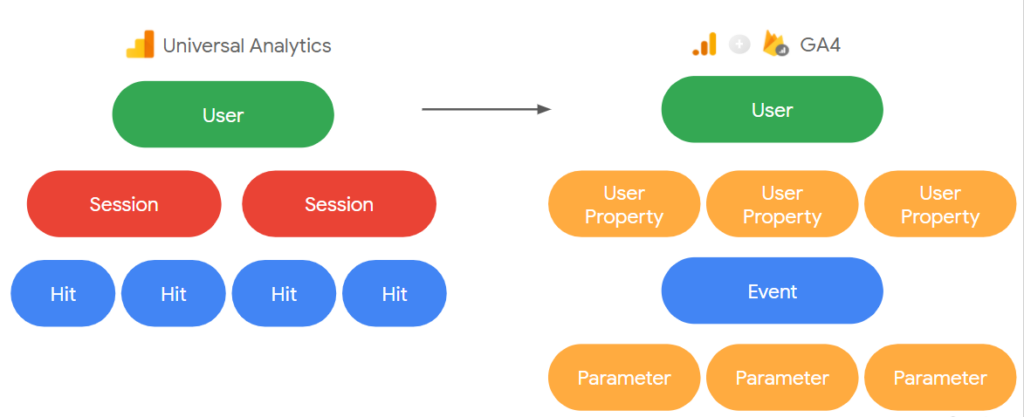Google Analytics 4 (GA4): A New Era Of Understanding Data

In the ever-evolving world of digital marketing, understanding user behaviour and making data-driven decisions are paramount. Google Analytics has been a go-to tool for marketers, providing valuable insights into website performance and user interactions. However, with the advent of Google Analytics 4 (GA4), a new era of analytics has begun, promising more advanced tracking capabilities and enhanced data analysis.
So what are some of the new and updated capabilities of GA4?
Enhanced Cross-Platform Data Tracking
GA4 introduces an entirely new data model designed to address the challenges of tracking users across multiple devices and platforms. While Universal Analytics relied heavily on cookies and client IDs, GA4 employs an event-based model that focuses on tracking user interactions. It enables marketers to gain a more comprehensive understanding of user behaviour by consolidating data from websites, apps, and other digital touchpoints into a unified view.
Machine Learning-Driven Insights
One of the most significant advancements in GA4 is the integration of machine learning (ML) algorithms. GA4 utilizes ML to automatically analyze data, identify patterns, and deliver valuable insights to marketers. This functionality enables businesses to make data-driven decisions quickly, without the need for extensive manual analysis. The ML capabilities of GA4 provide actionable recommendations to optimize marketing campaigns, improve user experiences, and enhance overall website performance.
Event-Driven Data Collection
Unlike Universal Analytics, which focused primarily on page views and sessions, GA4 centres around events. Events capture various user interactions such as clicks, video views, downloads, and more. By implementing event tracking, marketers gain deeper insights into specific actions users take on their websites or apps. This granular data empowers businesses to understand user engagement at a much more detailed level, leading to more effective optimization strategies.
Enhanced Cross-Domain Tracking
GA4 simplifies cross-domain tracking by eliminating the need for complex configurations and additional code snippets. With GA4, you can easily track user interactions across multiple domains or subdomains within a single property. This streamlined approach allows businesses to gain a holistic view of user journeys and customer touchpoints, enabling them to analyze the effectiveness of their marketing efforts seamlessly.
Privacy and Consent Control Insights
As privacy concerns continue to rise, GA4 acknowledges the importance of user consent and data protection. With GA4’s enhanced privacy controls, you can customize data collection based on user consent preferences. This feature ensures compliance with various privacy regulations while maintaining accurate and reliable data for analysis.
Advanced Reporting and Analysis
GA4 offers a more robust and intuitive reporting interface compared to Universal Analytics. The updated user interface provides access to pre-built analysis templates, such as the Exploration feature, allowing marketers to explore data effortlessly. Additionally, GA4 introduces predictive metrics that estimate user behaviour trends, helping businesses anticipate future outcomes and make informed decisions.

What’s Next?
Google Analytics 4 is an evolution in the world of data analytics, revolutionizing the way marketers track and analyze user behaviour. With its enhanced cross-platform tracking, machine learning capabilities, event-driven data collection, and simplified cross-domain tracking, GA4 empowers businesses to gain deeper insights into user interactions. Moreover, GA4’s privacy and consent controls ensure compliance with data protection regulations while delivering accurate and actionable insights. By embracing GA4, marketers can unlock new possibilities for optimizing marketing strategies, enhancing user experiences, and driving business growth in the dynamic digital landscape.
All standard Universal Analytics properties will stop processing new hits on July 1, 2023, and 360 Universal Analytics properties will stop processing new hits on July 1, 2024. After that, you’ll be able to access your previously processed data in Universal Analytics for at least six months.